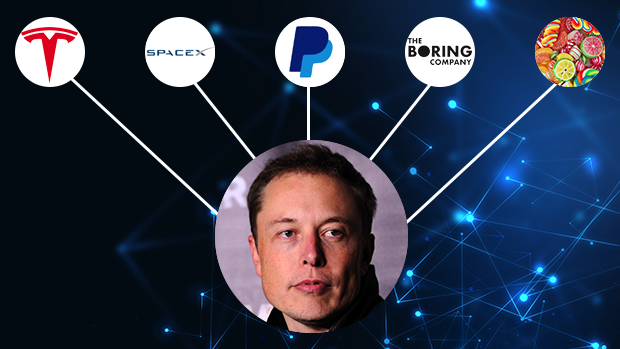May 11, 2018
‘Stick to tech’: How Elon Musk’s foray into candy could lead him astray

Spaceships, electric cars, artificial intelligence – and now candy?
That’s Elon Musk’s latest pursuit, or so he says.
Last weekend, the Tesla CEO took to Twitter to announce he was going to start a candy company and that “it’s going to be amazing.” His pledge came after billionaire investor Warren Buffett and Berkshire Hathaway Vice-Chairman Charlie Munger said Musk was wrong by proclaiming moats, a term popularized by Buffett, are “lame” in Tesla’s latest earnings call
Musk, who ranks number 48 on the Bloomberg Billionaires Index with his net worth estimated to be US$19.9 billion, is known for being an innovator and visionary, with Zip2, PayPal, SpaceX, The Boring Company, and Tesla among some of his best-known undertakings.
“Almost all of these ventures leverage to some extent his engineering and computer science capabilities as well as his innovative brilliance,” noted Steven Minns, faculty member of the Strategy and Business Economics Department at UBC’s Sauder School of Business, in an email to BNN Bloomberg.
“What's different about candy is that it doesn't require any computer science or engineering expertise,” he added. “It's therefore an example of ‘unrelated diversification,’ and with respect to potential success, it all relies on whether he can formulate innovative products or an innovative business model.”
But could Musk’s latest ambition stretch the billionaire too thin?
“I would suggest Elon Musk stick to tech,” said Bruce Croxon, co-founder of Round 13 Capital, in a television interview with BNN Bloomberg, “because it’s going to be a lot tougher than he thinks it is.”
While candy is outside of his regular purview, Minns says Musk’s past successes and global recognition will continue to draw in customers.
“He also should be able to benefit from what we call in economics ‘brand capital’ – the fact that he is well-known and anything that he does will attract interest, and therefore sales,” Minns said.
“Many multinationals or larger firms compete in totally unrelated industries,” echoed Mary Han, associate professor of Entrepreneurship and Strategy at Ryerson University. “This kind of unrelated diversification can yield good value for the firm. Elon just has to be very attentive and select the right person to oversee the business.”
But it hasn’t been all praise for Musk. He’s come under fire for repeatedly failing to meet production targets for Tesla’s Model 3 cars.
“I would suggest he’s got enough on his plate trying to get those Teslas into the marketplace,” Croxon said.
Hans argues if Musk is able to balance his attention and get the right strategy in place, his candy business could take off.
“Serial entrepreneurs have a unique repertoire of knowledge that they can bank on,” she said. “Bright ideas plus knowledge can be explosive.”
Here’s a look at some of Musk’s most famous ventures:
Zip2 Corporation. Musk launched the software company in 1995. Four years later, he sold it to Compaq Computer Corp. for US$307 million.
X.com. An online banking firm Musk founded in 1999, which was later merged with Confinity and rebranded to become PayPal
SpaceX. Musk founded the aerospace manufacturer and space transportation company in 2002 and still runs the company today.
Tesla, Inc. Formerly known as Tesla Motors, the electric-car maker wasn’t actually founded by Musk. It was started in 2003 by Martin Eberhard and Marc Tarpenning. However, Musk was involved in the company at its early stages and is now the CEO.
Solar City. Solar City is a subsidiary of Tesla that was founded by Musk’s cousins Peter and Lyndon Rive in 2006. Tesla acquired the company in 2016 for about US$2 billion and Musk serves as chairman.
OpenAI. The non-profit AI research company’s aim is to build safe artificial general intelligence. Musk co-founded the company in 2015 with a number of other investors.
The Boring Company. This infrastructure and tunnel construction company was founded by Musk in 2016.
Neuralink. Musk and eight others founded the neurotechnology company in 2017 with the goal of merging the human brain and AI.




